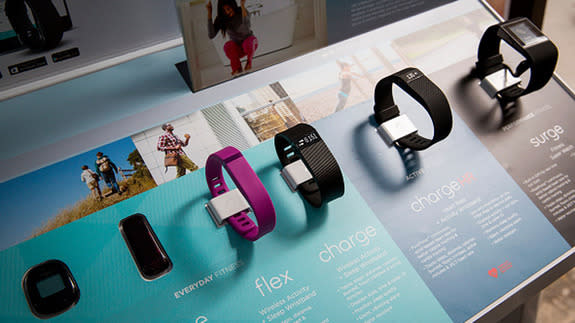The problem with schools requiring students to wear fitness trackers

Oral Roberts University, a Christian school in Tulsa, Oklahoma, announced in early January that all its first-year students must wear Fitbits, a fitness tracker that monitors a person's physical activity.
The program is open to all students, but mandatory for any freshmen or transfer students.
Provost and Chief Academic Officer Dr. Kathaleen Reid-Martinez spoke with Mashable about the plan. While the concept is nothing new for the school, the integration of technology is.
See also: Your next sports bra could also be a fitness tracker with OMbra
Oral Roberts was founded 50 years ago and has maintained a "Whole Person" philosophy of education, which means education of the body, mind and spirit. Every on-campus student at ORU is required to take Health and Physical Education (HPE) courses every semester.
Reid-Martinez says the school assessed that many students were already using the trackers, so rather than continue to manually log their activity, the school has evolved their existing program by incorporating Fitbit technology.
But the requirement raises questions, for instance, whether a fitness requirement like this prioritizes able-bodied students. When asked about students with physical limitations, Reid-Martinez says the faculty works with such students to create a customized fitness program that fits their particular needs.
There are nearly 3,700 students total at the university for the 2015-2016 academic school year, and 900 first year students (freshman and transfer students).
Students are required to walk 10,000 steps per day to meet 150 active minutes per week; ORU defines "active minutes" as "an activity that raises a student’s heart rate to a range of 60%-80% of their maximum heart rate." The school cited a 2011 study from the American College of Sports Medicine for this criteria.
The Fitbit program comprises 20% of the students overall grade in their HPE class. The rest is made up of more typical college course requirements, such as attendance, tests and specific course mandates.
In terms of average college costs, per year ORU is less expensive than the national average of private universities, but many college students struggle to afford add-ons beyond tuition, such as books, supplies, course fees — and fitness trackers. When asked about students who couldn't afford the device, Reid-Martinez says the students are "handled on a case by case basis."
ORU sells on-campus and uses the Fitbit HR Charge, which does not have a GPS tracking feature, so students need not worry about the school monitoring their location. The Provost also says that although students "authorize ORU to receive their information...the University only requests two pieces of data, including heart rate and number of steps. "
Reid-Martinez describes the goals of their new program: "For ORU, the primary goal is to provide a convenient and efficient way for students and faculty to work together to ensure students attain their physical fitness goals."
There are plenty of colleges with physical education or exercise requirements, and when looking at schools, this is certainly something to consider. But is forcing students to buy and monitor themselves in this way the answer?


